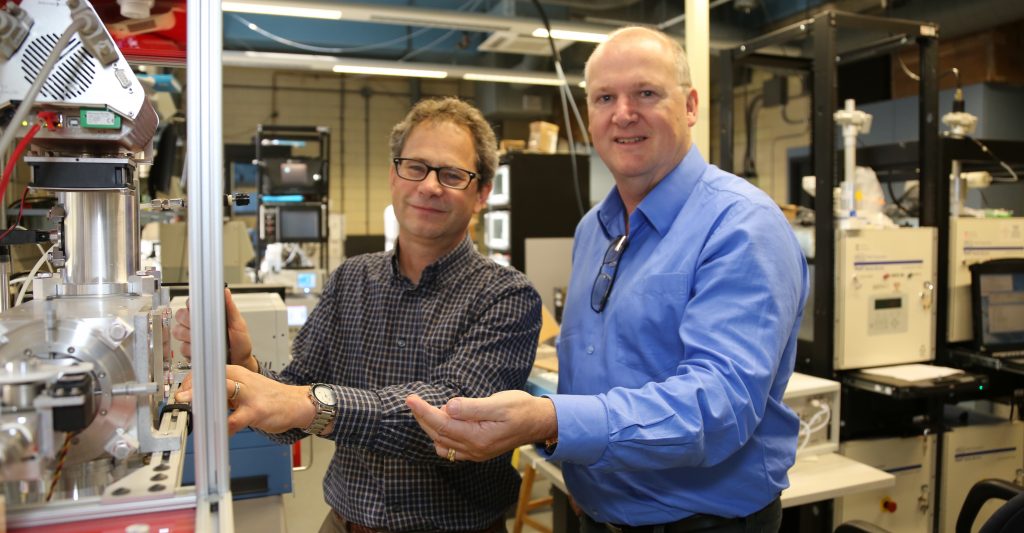Dr. Suzanne Stewart named Director of the Waakebiness-Bryce Institute for Indigenous Health
December 09/2016Dr. Suzanne L. Stewart is the new Director of the Waakebiness-Bryce Institute for Indigenous Health as of January 1, 2017, following a search conducted by representative committee of Indigenous and DLSPH leaders facilitated by a firm specializing in recruiting for Indigenous academic positions. “I am delighted to welcome Suzanne to...
Professor Andrea Tricco awarded Canada Research Chair to help governments, health-care providers and patients make health-related decisions
December 02/2016Andrea Tricco, an Assistant Professor of Epidemiology, has been awarded a Canada Research Chair in Knowledge Synthesis, federal Science Minister Kirsty Duncan announced today. The five-year chair worth $100,000 a year will allow Tricco to continue her work in knowledge synthesis – combining information from large numbers of research studies...
Public health researchers launch first Canadian study on couples with different HIV statuses
November 29/2016December 1 is World AIDS Day — the longest-running global health day. Held every year since 1988, the date provides an opportunity for the world to show its support for people living with HIV and remember those who died. The University of Toronto has hosted World AIDS Day events since...
DLSPH, IHPME Partner with City Of Barrie to Improve Population Health and Health System Sustainability
November 28/2016A new partnership between the University of Toronto and city of Barrie will provide a vehicle for innovative, collaborative efforts to improve community health. The partnership is called the Healthy Barrie project and includes the Dalla Lana School of Public Health, the Faculty of Medicine, the City of Barrie, the...
Dr. Erica Di Ruggiero named Director of Office of Global Public Health Education and Training
November 24/2016Dr. Erica Di Ruggiero is the new Director of the Office of Global Public Health Education and Training as of December 1, 2016 following a search conducted by a broadly representative DLSPH committee of global health experts that unanimously endorsed her appointment. “I am delighted to welcome Erica to this...
Privilege and Oppression: Two Sides of the Same Coin
 November 23/2016
November 23/2016
By: Alyson Musial, Communications Officer, Department of Physical Therapy, U of T As healthcare providers, how do we think and talk about privilege? How do we understand issues of oppression? Are we able to identify and analyze our own positions of advantage? Stephanie Nixon is facing these difficult questions head-on. While they...
New research consortium aims to build critical bridge between environmental and health data
 November 22/2016
November 22/2016
By: Marit Mitchell,Communications & Media Relations Strategist, University of Toronto Engineering You can sequence your unique genome in search of genetic mutations that cause disease. But it’s much harder to study your ‘exposome’ — the cumulative effect of your environment on your health over a lifetime. Now a pan-Canadian research...
Basic Income Can Reduce Food Insecurity and Improve Health
 November 16/2016
November 16/2016
By: Jim Oldfield, Writer, Office of Communications, Faculty of Medicine, University of Toronto Ontario plans to roll out a pilot project on guaranteed annual income early next year. The goal of the project, according a recent report by former senator and current master of Massey College Hugh Segal, is to test...
VIDEO: Dean’s Leadership Series explores how public health can enable everyone have a good life until the last breath
 November 14/2016
November 14/2016
On November 1, 2016, the Dalla Lana School of Public Health in partnership with the Institute for Global Health Equity and Innovation hosted the second Dean’s Leadership Series to explore the provocative question: “A good death for all: what would it take?” Approximately 200 members of the U of T...
Sex matters less and less when it comes to mortality rates
November 14/2016New trends show that low-income women have a shorter life expectancy than high-income men in Canada, according to University of Toronto researchers who conducted one of the first and largest Canadian studies to examine gender-based mortality differences. “This study is important because it looks like male and female mortality rates...